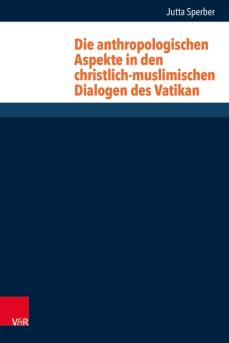Christian-Muslim Dialogues
Habilitation thesis compares Christian and Muslim views of mankind

In her habilitation thesis, the scholar of religious studies Dr. Jutta Sperber examined the Christian-Muslim dialogues of the Vatican until the death of Pope John Paul II for elements that characterise man and his position before God and in the world. The Catholic magisterium, as laid down in the texts of the Second Vatican Council and in the statements of the Popes Paul VI and John Paul II in particular, but also the various statements of today’s Pontifical Council for Interreligious Dialogue, are brought to bear. The dialogues themselves included contacts to Saudi Arabia, Libya, Jordan, Egypt, Turkey and Iran, for example, and dealt with topics such as tolerance and human dignity, the position of women and the rights of children, resources and nationalism, media and education, but also piety and mission.
Besides great similarities, differences between Christianity and Islam also emerge. In the view of both religions, God created man, assigned him his task and will demand accountability from him. The major difference lies in the creative freedom in the implementation of these tasks. While Islamic law specifies a lot rather rigorously, Christianity allows more liberties. In these regulations, the Muslims involved in the dialogues saw a solution for many problems, while the scope for decision-making did not seem desirable to them at all.

